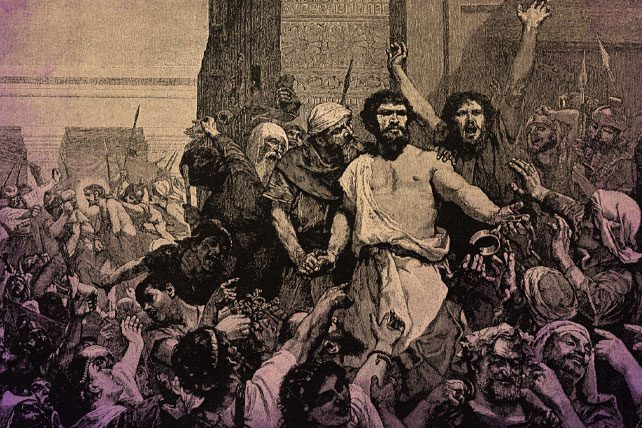Theological Interpretations of Barabbas’s Release
Substitutionary Atonement
One of the most profound theological interpretations of Barabbas’s release is its illustration of substitutionary atonement. In Christian theology, this concept refers to Jesus Christ dying on the cross in place of sinners, bearing the punishment meant for humanity. Barabbas, a guilty criminal, is freed while Jesus, innocent of any crime, is crucified. This act prefigures the essence of the gospel message, where Jesus substitutes Himself for sinners, offering salvation through His sacrifice.
Divine Sovereignty and Human Choice
The choice between Jesus and Barabbas highlights the interplay between divine sovereignty and human choice. While God’s sovereign plan for salvation through Jesus’s death is unfolding, human actors (the crowd, Pilate, and the religious leaders) make choices that fulfill this divine plan. This dynamic raises questions about free will, predestination, and the purposes of God throughout human history.
RELATED: Jesus Is the Only Way: How to Answer Questions About Heaven
Reflections on Mercy and Justice
Barabbas’s story prompts reflection on the themes of mercy and justice. The crowd chooses mercy for a criminal but demands justice for an innocent man, albeit a distorted version of it. This scenario invites believers to ponder the nature of God’s justice and mercy—how, at the cross, divine justice is satisfied through Jesus’s sacrifice, and divine mercy is extended to humanity.
The Symbolism of the Crowd’s Choice
The crowd’s preference for Barabbas over Jesus has been interpreted as symbolic of the world’s rejection of Christ and His message. This choice reflects a broader theme of rejection throughout the Gospels, where Jesus is often dismissed by the very people He came to save. It serves as a mirror to society’s choices and priorities, often favoring the temporal and tangible over the spiritual and eternal.
Personal Reflection
The exchange between Barabbas and Jesus not only holds theological significance but also serves as a catalyst for personal reflection. It challenges individuals to consider their own choices and the figurative “Barabbas” they may choose over Jesus in daily life. It’s a call to recognize the gift of salvation freely given, despite humanity’s unworthiness, and to respond with gratitude, repentance, and a commitment to follow Christ.
Barabbas’s release, though a brief moment in the biblical narrative, opens a window into deep theological and existential questions. It illustrates central Christian tenets of atonement, mercy, and the cost of salvation. Reflecting on Barabbas’s story encourages believers to appreciate the depth of Christ’s sacrifice and the profound love of God that offers redemption to all, regardless of past choices or deeds. The story of Barabbas remains a compelling testament to the transformative power of divine grace, inviting ongoing exploration and reflection on the mysteries of faith.

